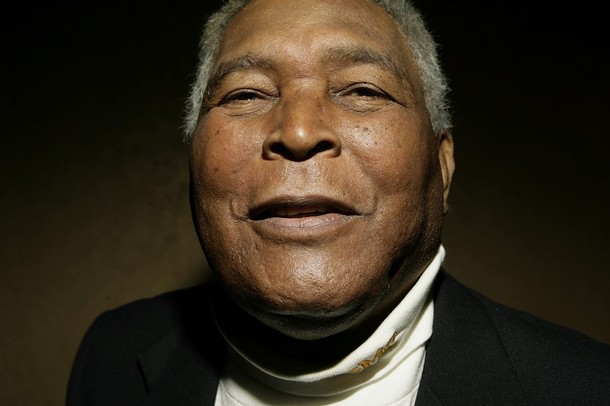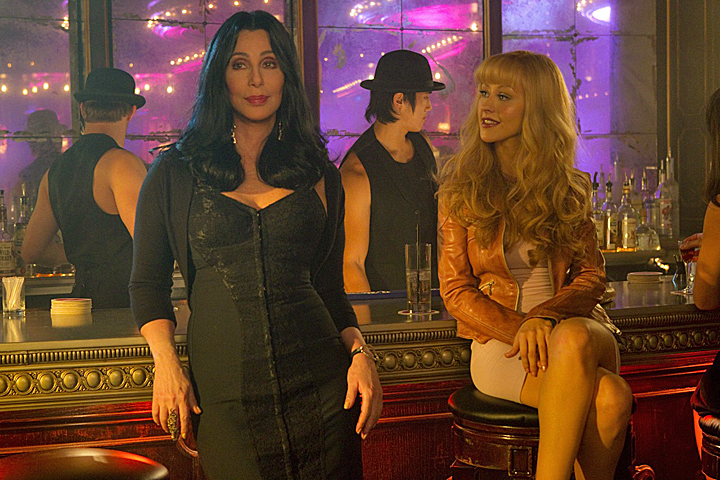Q. Recently there has been a press argument between Spike Lee and Clint Eastwood. I’m wondering what you think of Lee’s accusations. Spike Lee is a talented, original voice in American filmmaking, but what he has to say about “Flags of Our Fathers” seems to be a little off the mark. Your thoughts?
Nathan Marone, Chicago, IL
A.
Lee believes that Eastwood should have shown some African-American soldiers in his depiction of the battle of Iwo Jima. Eastwood counters that there were no African Americans involved. An article in the New York Times concludes that there were African-Americans involved in the battle, but (because of racial discrimination) they were in the supply lines, not the front lines. Both directors have a point. It is certainly true that black characters for years were under-represented in Hollywood movies about World War II. The Tuskegee Airmen are an example.
Q. Although there are rare times when a remake is justified, such as when the world has greatly changed and it would be relevant to see how such events would affect precise film characters, I’m greatly annoyed at Hollywood’s lack of creativity. If I see one more film version of a ’60s or ’70s TV show (now we have “Get Smart” to deal with), I’m going to puke.
Richard Voza, Mickleton, N.J.
A.
You may have to lay in a supply of sick bags. With its $38 million opening weekend, “Get Smart“” looks like the launch of a franchise. And it will justify the filming of still more old TV retreads, although the bottom of the barrel must be approaching. All hail to Kevin Costner, who refuses to do sequels. However, how much work has that cost him, compared to Harrison Ford; their career paths have crossed many times, but Ford is notably receptive to sequels.
Q. I understand your review of “The Happening” as a study of the reaction to an unknown threat by the masses. However, I left the theater feeling sick after all of the graphic, depraved suicides. Please comment on the value of the continuous death scenes and why you chose not to acknowledge that M. Night Shyamalan felt that it was necessary to video a man starting a lawn mower, watching it roll around, lying down in front of it, and then getting gored by the mower when the audience knew full well what the man intended to do.
Jed Nolan, Morgantown, W. VA
A.
You could argue that at the point when he did that, the man was no longer himself but had lost his sense of reason. That could be symbolic of the planetary suicide that the movie says we are currently committing.
Q. In your review of “The Love Guru,” you once again credit Mike Myers with creating peek-a-boo prop placement in the “Austin Powers” films. I think it’s past time that we all acknowledge, as Myers himself has, that he stole the whole idea from the late, great Benny Hill, whose television shows he saw growing up in Canada, years before they were shown in the USA. I’ll note here that Hill never overdid it to the degree that Myers does.
Mike Doran, Oak Lawn
A.
Credit given. I think “prop placement” is an excellent term for the technique you refer to, which involves using props on the screen to conceal a moving object, such as Austin Powers’ whatchamacallit.
Q. You know the action sequence involving the freefall without a parachute where one person catches up to another? The first time I saw it was in “Moonraker,” and many times since, including “Point Break,” “Shoot ’em up” and “Crank.” But is it accurate that when freefalling, you can change the velocity to which you are approaching the earththat dramatically, that by closing your arms and legs together, you could catch up to someone flailing their arms and legs?
Tor Ramsey, Shelby, N.C.
A.
For an answer, I turned to computer columnist Andy Ihnatko of Boston, who somehow always knows about stuff like this. He replies:
“Yes, it is absolutely true. The short answer is to think about how fast a skydiver falls before and after the chute deploys. Same man, same parachute; after he pulls the ripcord, he’s exposing more surface area to the onrushing air. Simple. Or you can take a look at a YouTube video, which you can find by searching for ‘indoor skydive.’ It shows a static skydive attraction where a huge turbofan in the floor blows upward at the same force as you’d encounter after jumping from a plane. The person in ‘freefall’ position perpendicular to the oncoming air is hovering four feet above the floor. The person who’s presenting the lowest profile can stand in place like nothing unusual is going on.”
Q. I have been an Indy fan for as long as I can remember; I grew up on the movies. I thought “Indiana Jones and the Kingdom of the Crystal Skull” was a fantastic movie, and I sat through the movie with the biggest grin on my face. And it wasn’t just because the movie itself was great. As I was watching, I noticed that the same sound effects were used from the other three movies for the punches in the fights. Also, the same ambient jungle sounds from “Raiders” were used. Hearing these sounds put together with different pictures and sequences made the movie truly special for me. Did you pick up on this re-use as you were watching the film? And if so, did it have a similar effect on you?
Jonathan Furr, Concord, N.C.
A.
Sound effects experts often recycle existing sounds from other movies. At rogerebert.com, look up “The Wilhelm Scream” in the Answer Man archive for another example of sounds that live on long after they were first used. First used in 1951, the Scream is still being employed today.
Q. In your review of the spy spoof “Johnny English,” you said, “Can we all pretty much agree that the spy genre has been spoofed to death?” I noticed that you gave “Get Smart“” — a spy spoof, which, based on the trailer and outside reviewers, seems pretty mediocre — a whopping 3.5 stars. What do you feel sets “Get Smart“” ahead of films like “Johnny English,” since both seem so heavily reliant on slapstick and silliness?
Adam Fangman, Omaha, Neb.
A.
I begin with the advantage of having seen both films. But I nevertheless feel the spy genre has been pretty much spoofed to death.












